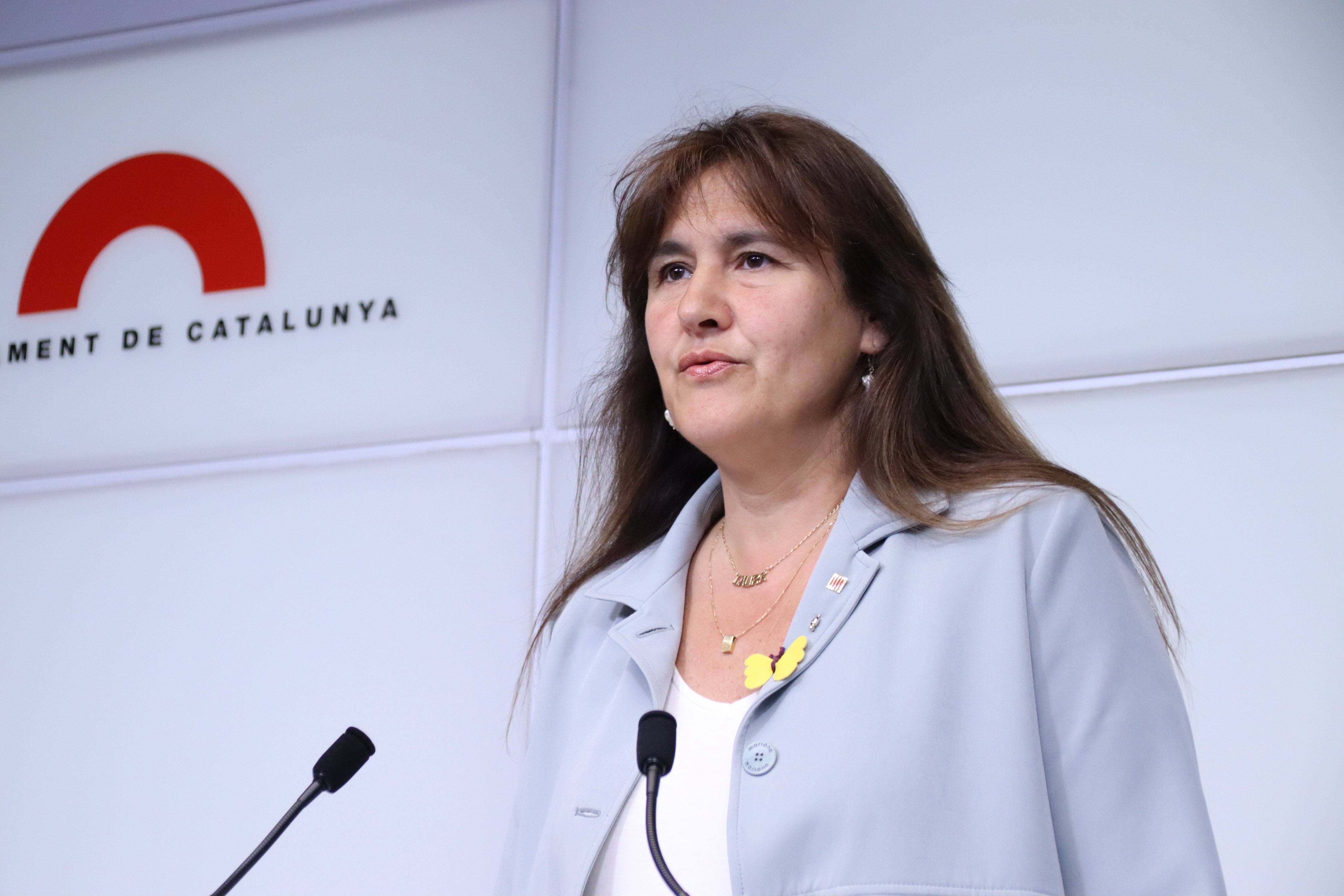The Catalan government and Together for Catalonia (Junts) met this Wednesday afternoon at the Parliament of Catalonia to explore a "democratic common front" for the Spanish general elections of July 23rd, a proposal launched this Tuesday by the president of Catalonia, Pere Aragonès. The meeting, which took place in Aragonès's office in Parliament, lasted around an hour and a quarter. After exploring "various formulas", the president of Junts, Laura Borràs, explained that both parties have agreed to "continue working to make a space and a common front possible" without ruling out "anything", including the option of "a joint list", which is what Junts defended.
Present at the meeting on behalf of the Catalan government were president Pere Aragonès and the minister of the presidency, Laura Vilagrà. For Junts, the delegation was formed by Laura Borràs, Jordi Turull and Albert Batet. However, the subsequent media appearance was conducted by Borràs alone. During this meeting, according to the leader, there was an "analysis of municipal election results". After presenting her "readings" and "evaluating the abstention and being well aware of the message that has been sent by the pro-independence electorate", the Junts president indicated that they "analysed the various proposals " and agreed to continue talking in the next few days about these. "Despite knowing that there are differences, mistrust and general despondency, we have set out to work to make possible a common front, whose purpose, as we see clearly in Junts, must be to move towards independence", she added.
Oriol Junqueras rules out a joint list
The meeting with Junts is the last of the round of contacts this Wednesday that the president of the Generalitat, Pere Aragonès, has had with various parties over the common front idea. At 12 noon, he met with the leader of his own ERC party, Oriol Junqueras, who later made it very clear that they discarded the joint list and limited such a front to "programmatic agreements". In fact, among the proposals that are being addressed, common programmatic points are one of the options that are gaining most traction, and the possibility of making a joint list only in the Senate has also been explored.
After ERC, Aragonès met with Jéssica Albiach of En Comú Podem, who called Aragonès's proposal disappointing and said that opting for a common front was a "smoke screen": "The problem of Catalonia is a weak government," she said. Likewise, the anti-capitalists of thCUP were wary, asserting that it contained only generic analyzes of the political context. "Solutions to deep-rooted problems are not found quickly", warned deputy Eulàlia Reguant. The three meetings with these parties lasted around an hour. The president will conclude this first rounds of contacts with the PDeCAT on Thursday morning.
From the office of the Catalan presidency, a "positive" assessment is given of the meetings with the parties and they argue that it is very important to "continue working between the parties to build a democratic front that contributes to the strengthening of the country in the face of the threat posed by the wave from the right and the extreme right". This is where there are discrepancies with Junts, as evidenced by Laura Borràs: "We do not read the Spanish elections as a fight against the extreme right, but as a defence of Catalonia and its interests". In fact, Borràs has pointed out that in this common front, only the pro-independence parties should be present.

